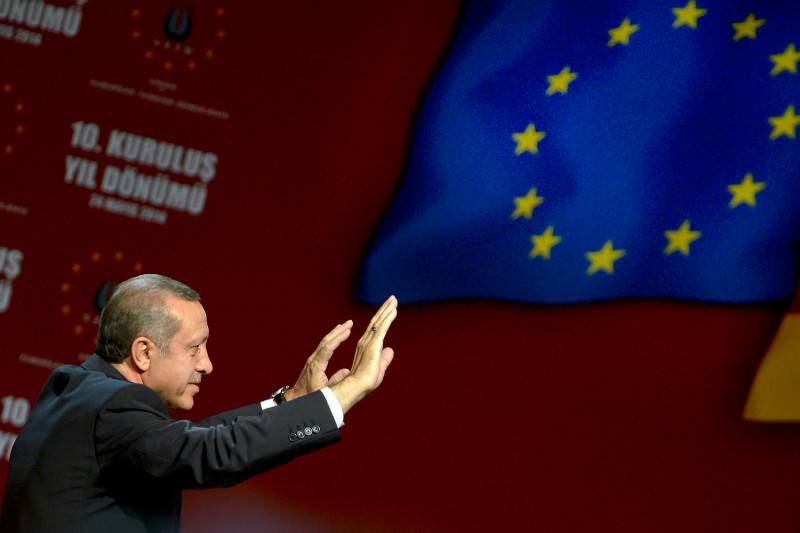This week, Ankara announced that it would deploy troops to support the Government of National Accord (GNA) in Tripoli in its fight against its opponents in the country's east, the Libyan National Army (LNA), after ceasefire negotiations between the two in Moscow failed.
Turkish President Recep Tayyip Erdogan has called on the European Union to support his country's mission to prop up the UN-recognised Government of National Accord’s (GNA) forces, warning in an op-ed in Politico that Europe’s security, stability and even political future depend on it. He argued that refusing to back the GNA "would be a betrayal of [the EU's] own core values", such as support for democracy and human rights.
Erdogan also specifically stressed the potential harm that the Libyan conflict could cause to Europe if it remains unresolved.
"Europe will encounter a fresh set of problems and threats if Libya’s legitimate government were to fall. Terrorist organizations such as Daesh* and Al Qaeda*, which suffered a military defeat in Syria and Iraq, will find a fertile ground to get back on their feet […] If the conflict rages on, the violence and instability will also fuel irregular migration toward Europe", he warned.
The Turkish president further argued that the EU needs to prove to the world that "it is a relevant actor in the international arena" and engage in resolving the Libyan conflict, beyond "simply complaining and expressing concern".
"European leaders, however, ought to talk a little less and focus on taking concrete steps. Keeping in mind that Europe is less interested in providing military support to Libya, the obvious choice is to work with Turkey, which has already promised military assistance", Erdogan stated.
Ongoing Civil War in Libya
Libya has remained divided between multiple warring factions ever since local militants, supported by foreign states, killed the last leader of the country, Muammar Gaddafi.
The two key groups are the GNA under Fayez al-Serraj, which controls the country's west as well as the capital Tripoli, and the Libyan National Army (LNA), led by General Khalifa Haftar, which controls the east. The latter has been besieging Tripoli in order to clear it of "terrorists" since April 2019, but with little success.
The two sides were close to reaching a ceasefire agreement in Moscow on 13 January, but Haftar refused to sign it in the end and the LNA announced the renewal of hostilities. Germany stated that a new attempt to negotiate a ceasefire would be held on 19 January in Berlin, with France, Turkey, Russia, the US, UK, China, and Italy also taking part in the mediation.
Turkey, in turn, also announced on 16 January that it would deploy troops to Libya in order to aid the GNA in accordance with a previously signed military cooperation agreement and a vow that such a deployment would be made if Haftar doesn't stop the LNA’s attacks on Tripoli.






